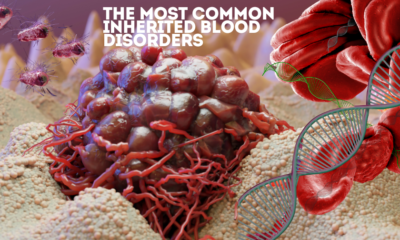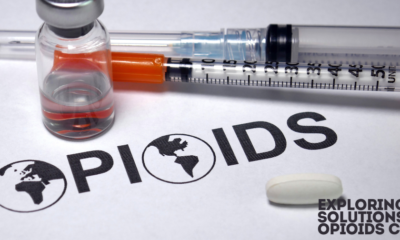Medical
Vaccination Myths and Facts: Dispelling Common Misconceptions

Vaccination remains one of the most effective public health interventions in modern history, saving millions of lives each year. However, misinformation and myths about vaccines persist, contributing to vaccine hesitancy and lower immunization rates in various parts of the world. This report aims to dispel some of the most common misconceptions about vaccines and present the facts, backed by scientific research and data from reputable organizations such as the World Health Organization (WHO), UNICEF, and other health bodies.
1) Myth: Vaccines Are Not Necessary Due to Improved Hygiene and Nutrition
A prevalent myth suggests that vaccines are no longer needed because of advances in hygiene, sanitation, and nutrition. While it is true that improved living conditions have contributed to better overall health and reduced disease transmission, they are not sufficient on their own to prevent the spread of vaccine-preventable diseases. Vaccines have played a crucial role in eradicating and controlling diseases that hygiene and sanitation alone could not eliminate.
For example, smallpox, a deadly disease that killed hundreds of millions over 3,000 years, was eradicated worldwide in 1979 solely due to a global vaccination campaign led by the WHO. Similarly, the significant decline in Haemophilus influenzae type b (Hib) cases in children is attributable to routine Hib vaccination, not to improved sanitation or nutrition alone. The United States saw Hib cases drop from an estimated 20,000 annually to 1,419 cases in 1993, coinciding with the introduction of the Hib vaccine.
2) Myth: Vaccines Cause the Diseases They Are Supposed to Prevent
Another misconception is that vaccines can cause the diseases they are meant to protect against. While it is true that vaccines are not 100% effective, they significantly reduce the likelihood of contracting and spreading diseases. The small percentage of vaccinated individuals who still contract a disease does not indicate vaccine failure. In reality, if a large majority of the population is vaccinated, the few who do not develop immunity (about 5-10% for most vaccines) may still contract the disease, but this is vastly different from the disease spreading uncontrollably in an unvaccinated population.
Vaccines are made from killed or weakened viruses or bacteria, or their components, to stimulate the body’s immune system without causing the disease. For example, the measles vaccine has an efficacy rate of over 99% with two doses, and those who contract measles despite being vaccinated often have milder symptoms.
3) Myth: Vaccines Cause Autism
One of the most harmful myths about vaccines is the discredited claim that they cause autism. This misconception originated from a fraudulent study published in 1998 that has since been retracted and debunked by numerous subsequent studies. A comprehensive review of vaccine safety by the U.S. Centers for Disease Control and Prevention (CDC), the WHO, and many other health organizations has repeatedly shown no link between vaccines and autism. Vaccines undergo rigorous testing and continuous monitoring for safety and efficacy before they are approved for public use.
4) Myth: Vaccines Contain Harmful Ingredients
Concerns about vaccine ingredients such as preservatives, adjuvants, and stabilizers have led to the myth that vaccines contain harmful substances. However, the amounts of these ingredients in vaccines are minuscule and are included to ensure the vaccines’ safety, efficacy, and longevity. For example, thimerosal, a preservative used in some multi-dose vaccine vials, is present in meager quantities and has been studied extensively, showing no evidence of harm at such low levels.
Additionally, vaccines are continually monitored for safety by national and international agencies. The overwhelming consensus in the medical and scientific communities is that the benefits of vaccination far outweigh the minimal risks associated with these ingredients.
5) Myth: Vaccination Is a Personal Choice That Only Affects the Individual
While the decision to vaccinate is indeed a personal one, it has broader public health implications. Vaccination is not only about protecting oneself but also about safeguarding those who cannot be vaccinated, such as infants, pregnant women, or immunocompromised individuals. This concept is known as herd immunity, where a high percentage of vaccinated individuals in a population protects those who are vulnerable and cannot be vaccinated. When vaccination rates fall, outbreaks of vaccine-preventable diseases can and do occur, as seen in recent measles outbreaks in Europe and the United States.
6) Myth: Natural Immunity Is Better Than Vaccine-Induced Immunity
Some argue that natural immunity acquired by contracting the disease is better than immunity from vaccination. While natural immunity can be robust, it comes with significant risks, including severe illness, complications, and death. For example, contracting measles can lead to pneumonia, encephalitis, or even death. Vaccination, on the other hand, provides a safe and effective way to develop immunity without these potentially life-threatening risks.
7) Myth: Vaccines Are Part of a Pharmaceutical Industry Conspiracy
A persistent myth is that vaccines are promoted by the pharmaceutical industry purely for profit. However, this claim does not stand up to scrutiny. If anything, the cost of treating diseases vastly outweighs the cost of vaccines. The return on investment for childhood immunization in low- and middle-income countries is estimated at $16 for every $1 spent due to healthcare savings and increased productivity. Moreover, numerous independent health organizations, including WHO, UNICEF, and national health bodies, recommend vaccines based on evidence of their effectiveness and safety, not industry profits.
8) Myth: Vaccines Can Cause Infertility
Concerns about vaccines causing infertility have also been widely debunked. Extensive studies on this issue have shown no evidence that vaccines cause infertility. Misinformation about infertility often arises from misinterpretations of unrelated scientific studies or outright falsehoods spread through social media and other platforms.
Vaccines and Improved Hygiene
While advancements in hygiene, sanitation, and nutrition have played significant roles in reducing the spread of diseases, they cannot replace the effectiveness of vaccines. Before the introduction of vaccines, diseases like smallpox, polio, and measles were widespread and caused numerous deaths globally. Despite modern sanitation, without vaccines, these diseases would still pose significant health threats.
For instance, the eradication of smallpox in 1979 was a direct result of an aggressive global vaccination program by the WHO. Similarly, polio cases have been reduced by 99% worldwide due to vaccination efforts. If polio vaccinations were to stop today, it is estimated that within ten years, the world would see as many as 200,000 new cases annually.
Vaccines Causing Diseases They Aim to Prevent
This myth arises from misunderstanding how vaccines work. Vaccines use inactivated (killed) or attenuated (weakened) viruses or bacteria that stimulate the immune system to recognize and fight these pathogens in the future without causing the actual disease. For example, the measles, mumps, and rubella (MMR) vaccine contains weakened versions of these viruses that are enough to prompt an immune response but not enough to cause the disease.
The effectiveness of vaccines is evident in their high success rates. According to UNICEF, vaccines like those for measles are about 97% effective when two doses are administered, meaning they can prevent disease in almost all vaccinated individuals. The few cases where vaccinated people still contract the disease usually involve milder symptoms than if they were unvaccinated.
Vaccines and Autism
The myth that vaccines, particularly the MMR vaccine, cause autism has been widely discredited. The origin of this myth is a 1998 study by Andrew Wakefield, which falsely claimed a link between the MMR vaccine and autism. This study was later found to be fraudulent, and Wakefield lost his medical license. Numerous studies involving hundreds of thousands of children have since found no evidence of a link between vaccines and autism.
Conclusion
Vaccination myths pose a significant threat to public health by fostering vaccine hesitancy and reducing vaccination rates, which can lead to outbreaks of preventable diseases. The facts show that vaccines are safe, effective, and essential for protecting individual and public health. Health organizations globally continue to advocate for vaccination, emphasizing that the benefits of vaccines far outweigh the minimal risks involved.
-

 Press Release5 days ago
Press Release5 days agoClinical Trials Market Set for Robust Growth, Driven by Drug Development Surge and Digital Innovation
-

 Press Release6 days ago
Press Release6 days agoGreen Bio Chemicals Market Poised for Sustainable Growth amidst Global Shift to Eco-Friendly Alternatives by 2035
-

 Press Release6 days ago
Press Release6 days agoFill-Finish Pharmaceutical Contract Manufacturing Market Expected to Flourish Amid Biopharmaceutical Boom and Global Outsourcing Trend by 2035
-

 Press Release6 days ago
Press Release6 days agoIndustrial Boiler Market Expected to Surpass USD 24.4 Billion by 2035 Amid Growing Demand for Energy Efficiency and Industrialization
-

 Press Release6 days ago
Press Release6 days agoPreventive Vaccines Market to Witness Strong Growth by 2035
-

 Press Release6 days ago
Press Release6 days agoPet Food Nutraceutical Market Set for Robust Expansion Amid Rising Demand for Pet Wellness by 2035
-

 Press Release5 days ago
Press Release5 days agoPediatric Vaccines Market: Safeguarding Futures, Driving Growth
-

 Press Release6 days ago
Press Release6 days agoCat Food Market Forecast 2035: Natural Ingredients, Pet Wellness to Lead the Way






























